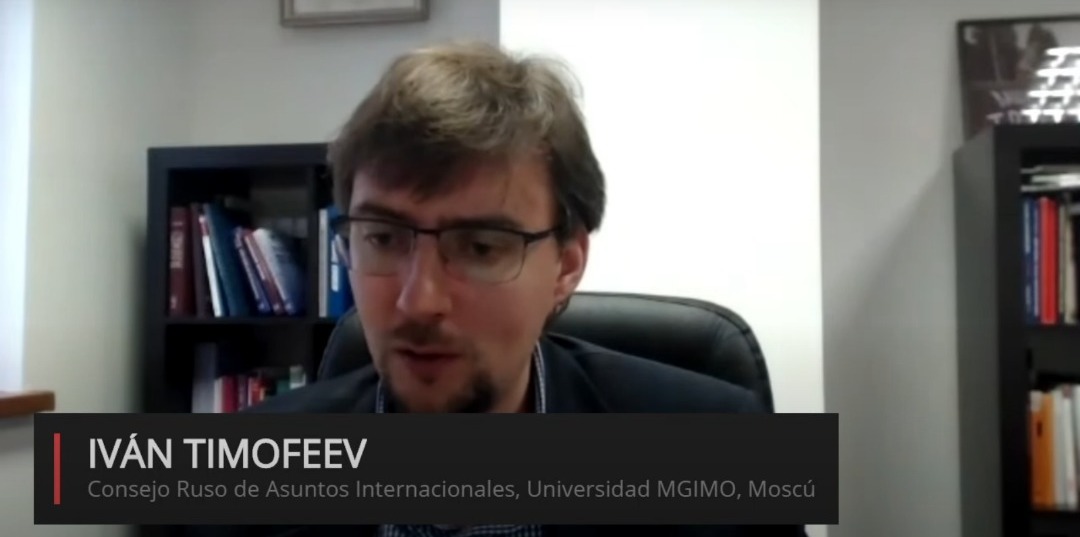The negative, destructive impact of “secondary sanctions” and their application to companies and individuals hamper the ability of government to have a regular access to the International Financial System or healthy commerce, said on Thursday Ivan Timofeev, professor at the Russian International Affairs Council.
In his presentation at the international conference “Unilateral Coercive Measures: Disrespect for International Law, Serious Human Consequences,” the professor insisted that it is necessary to hold a deep debate on the impacts of sanctions on companies and the world.
“An issue discussed yesterday is ‘Why do companies comply with sanctions?’ The answer is that they do it out of fear. They fear the U.S. unilateral coercive measures […] Today, the U.S. is the main imposer of sanctions in the world as it has the most efficient, sophisticated bureaucracy to apply them,” added Timofeev, referring to the policy of sanctions applied by Washington on Europe.
In that same vein, Timofeev mentioned the aggression agenda of the White House and its allies against Venezuela, and even Russia and Iran, in recent years, recalling the persecution of the U.S. Government against allied commercial tankers transporting fuel to the South American country and Venezuelan oil overseas during the COVID-19 pandemic, and the sanctions applied to the main commercial partners of PDVSA, Rosneft Trading and TNK Trading International.
“The financial penalties can be high. Our data show that the Department of Treasury and the penalties imposed by the Office of Foreign Assets Control (OFAC) can go as far as $5.6 million fines that should be paid by banks,” he explained.
Professor Timofeev pointed out that these issues are real and must be debated and become visible at multilateral forums.
“These secondary sanctions and their application do not only have effects on banks, but also on human rights,” warned Timofeev, who said that sanctioned individuals cannot enjoy their financial rights and are forced to use archaic systems to make their transactions, thus creating spaces for corruption.



